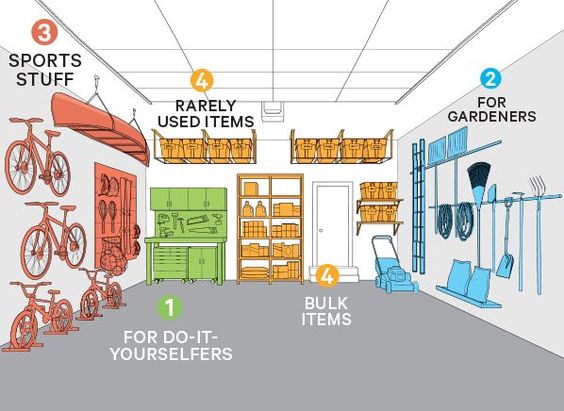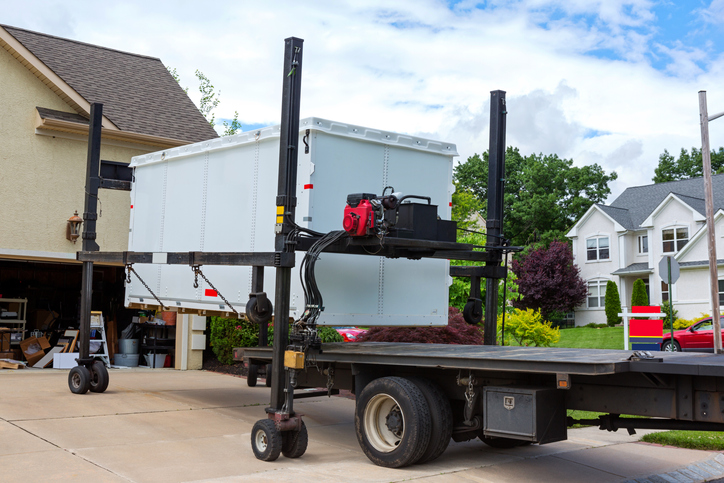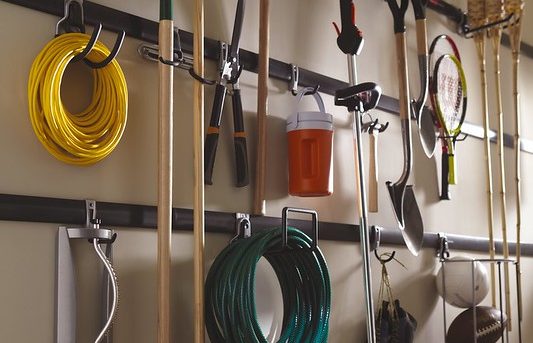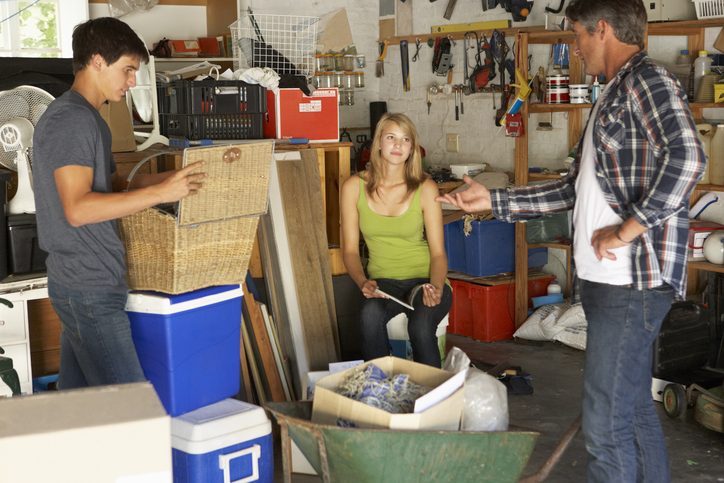Florida’s summer heat and humidity will be in full force in a matter of weeks. Therefore, if you did not get to “cleaning out your garage” on your quarantine to-do list, now is the time to do so. Below are some steps you can take to improve your space, no matter the scale of your project.
Goal Setting
What is the goal for this project? Be realistic and consider time constraints, labor, and expense involved. Do you want to get your garage just orderly enough to park your cars inside, or do you want a pristine, Architectural Digest-worthy space? Your goal will influence your organization plan.
Make a Plan

Planning how you’ll organize the garage is essential, especially if you have other people helping you. Create an outline of the project that includes tasks that you can delegate if necessary. By following a plan, you’ll have steps to reach your goal in the time you’ve allotted, plus you’ll know when you’ve fallen behind and need to adjust.
Your plan can include a layout of where you want items in your garage to be stored. The internet is chock-full of inspiration for layout and organization ideas for your tools and other supplies.
Empty it Out

Stuff: it piles up! In order to see what you have and to properly clean the inside of your garage, you need to take everything out.
For some, this is a huge task and may take multiple days or must be done over a period of weeks. In that event, consider putting up a tent or renting an onsite storage unit. The majority of on-site storage units are weatherproof and can be locked.
Sort the Contents
The three pillars of sorting your stuff have been held since time immemorial: stuff to keep, stuff to donate, and stuff to throw away. Even if it doesn’t spark joy, some of the stuff in your garage serves a valuable utility in your home. Be practical but discerning.
Dumpster Bags
If you have a lot of stuff to throw away, various waste disposal companies produce large, a durable dumpster bags is a disposable alternative to the traditional dumpster. When you fill up the enormous bag, you call your waste company to come and pick it up.
Electronics Disposal
Your regular trash pickup may not include electronics. For items like tube televisions, VCRs, radios, computers, and the like, you need to find an E-waste recycling program or E-waste company to take it off your hands. Electronics contain toxic metals that can affect our soil and water if they’re dumped in landfill. Municipalities often have e-waste drop off days.
Clean and Repair the Space
Now that you have an empty space, give it a deep clean. Sweep and scrub the floors. Examine along the baseboards to make sure all of the wood is in good shape. Prep and paint the inside walls. Replace the rubber gasket on the bottom of your garage door. Change the light bulb. Consider an epoxy covering on the floor to seal and protect the concrete.
Install Organizational Units, Shelving, Etc.

We are living in an unprecedented era for organizational supplies. There are multiple products available to organize and store virtually any object.
Plus, in addition to what is currently commercially available, clever people all over the world have devised various “hacks” and tips to customize shelving, transform Ikea basics, and carefully store almost any item.
Look at what items you need to organize and make sure that they have a space in your plan.
Unpacking and Home Inventory Checklist
Thanks to your careful planning, everything now has a place. Throughout the process of putting things away, take the time to start an accurate home inventory checklist. Document all of the items that you are now storing in your garage.
For each item, write down the:
- item type
- manufacturer
- model
- serial number
- date purchased
- purchase price
Take photos of each item and print them out. Keep these photos with the list as well as any receipts you have from purchasing the items.
Make Sure Your Garage Contents are Covered
Many people think that all of the contents of their home are covered under their homeowners insurance policy, but that’s not always the case. In order to cover your high-value items such as appliances, sporting equipment, and specialty tools, you may need separate personal property coverage.
Take your inventory list to your Florida Farm Bureau insurance agent, and they’ll be able to determine your available coverage and what, if any, additional coverage you may need.

